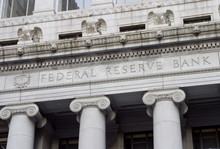According to a report by the Federal Reserve on Monday (8th May), turbulence in mid-sized institutions led to banks tightening their lending standards for both households and businesses, which could potentially endanger US economic growth.
According to the Senior Loan Officer Opinion survey released by the Federal Reserve on Monday8th May, mid-sized institutions' instability has led to banks tightening their lending standards for both households and businesses, which could pose a risk to the US economy.
The survey also stated that requirements for commercial and industrial loans, as well as many household debt instruments like mortgages, home equity lines of credit, and credit cards, have become more stringent.
Loan officers believe that lending standards will remain tight for the next year due to concerns about a slowing economy, deposit outflows, and reduced risk tolerance. They expect challenges to persist for both commercial and industrial loans, as well as household debt instruments such as mortgages, home equity lines of credit, and credit cards. According to the Federal Reserve's Senior Loan Officer Opinion survey.
When asked about their predictions for the next year, the respondents provided a rather pessimistic view of the future.
According to the Federal Reserve's Senior Loan Officer Opinion survey, banks anticipate a worsening of credit quality in their loan portfolios, reduced risk tolerance, and concerns about deposit outflows, bank liquidity, and funding costs to be the reasons for a probable tightening of lending standards in the remainder of 2023.
“Banks reported expecting to tighten standards across all loan categories,” the report said.
“There has been an ongoing tightening of lending conditions. And that is part of part of the process by which monetary policy works,” said Treasury Secretary Janet Yellen told CNBC’s Sarah Eisen
“The Fed is aware that tightening of credit conditions is something that will tend to slow the economy somewhat. And I believe they are taking this into account in deciding on appropriate policy” said Treasury Secretary Janet Yellen told CNBC’s Sarah Eisen.
Investors and analysts on Wall Street were closely monitoring the survey to assess the consequences of the turmoil in the banking industry, which intensified in the beginning of March.
The closure of Silicon Valley Bank and Signature Bank by regulators in early March caused a panic among depositors who feared that the banks would not have enough liquidity to meet their obligations.
After the incidents of banking troubles, JPMorgan acquired First Republic Bank and UBS bought Credit Suisse. Despite these issues, the Federal Reserve increased interest rates last week for the tenth time since March 2022. The policymakers had reviewed the Senior Loan Officer Opinion Survey report before their meeting on Wednesday, and the Fed Chair, Jerome Powell, stated that the current conditions were in line with their expectations, given the state of the banking industry.
“The SLOOS is broadly consistent when you see it with how we and others have been thinking about the situation and what we’re seeing from other sources”
“Banking data will show that lending has continued to grow, but the pace has been slowing really since the second half of last year” said Jerome Powell.
According to the Federal Reserve's own economists, the March meeting indicated that the tightening standards due to banking problems could lead to a shallow recession later in the year.






















